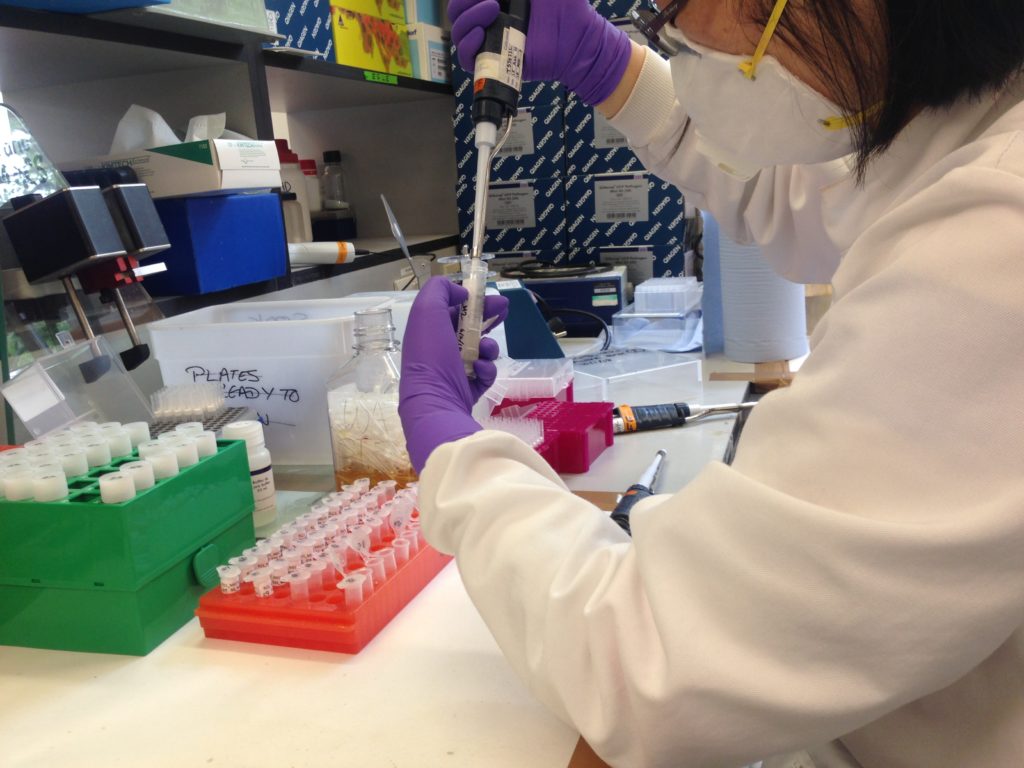Laboratory results published
We are delighted to announce the publication of our new paper, “Cellular immune function in myalgic encephalomyelitis/chronic fatigue syndrome (ME/CFS).” This publication captures many results from Phase 1 of our NIH R01 study, with analysis conducted on samples collected in 2013-2017.
Immunology and virology continues in our renewal award, with -omics work nearing publication.
The full publication is available here – scroll down for a lay summary:
https://www.frontiersin.org/articles/10.3389/fimmu.2019.00796/abstract.
Lay summary: Increased MAIT cell frequency in ME/CFS

Immune system dysfunction has long been suspected in ME/CFS, with many patients reporting an infection preceding their illness, as well as increased frequency of infections following disease onset. Yet, the results of immune studies in ME/CFS have been conflicting and inconclusive.
In our recent publication, we looked at several aspects of immune function in the blood cells of 251 people with ME/CFS, including 54 who were severely affected, and compared these with 107 healthy controls and 46 people with MS (Multiple Sclerosis).
Firstly, we measured the presence of antibodies against six different Herpes viruses in the blood, including Epstein-Barr virus, and found no difference between ME/CFS patients and controls. Next, we looked at different immune cells, including T cells and NK cells. Contrary to previous findings, no differences were found in NK cells between ME/CFS patients and controls. We also found no differences in the overall number of T cells, although differences were found in the proportions of different types of T cells in ME/CFS patients compared to controls; the functional role of these differences is yet to be determined.
Our most significant finding was highly increased numbers of a particular subtype of T-cell, called mucosal associated invariant T-cells (MAIT), in the severely affected ME/CFS patients compared to controls. However, this finding alone cannot be used as a diagnostic marker, but it could contribute towards diagnosis along with other factors.

MAIT cells are found mainly in the liver, lungs and gut and target cells infected with particular types of bacteria. They also respond to and produce pro-inflammatory cytokines (cell-signalling proteins), which have been found to be raised in ME/CFS. MAIT cells have been implicated in autoimmune diseases, such as rheumatoid arthritis. Interestingly, increased levels of MAIT cells have been observed in healthy individuals following exercise, suggesting that people with ME/CFS exhibit a post-exercise state at rest. It is possible that the increase in MAIT cells is driven by changes in the gut microbiome in ME/CFS, which should be investigated further.
These results demonstrate an altered immunological state in ME/CFS. Ours is the first study to report this finding of highly increased numbers of MAIT cells in ME/CFS, which warrants further investigation to determine the cause and whether it is contributing to the disease pathology of ME/CFS.







